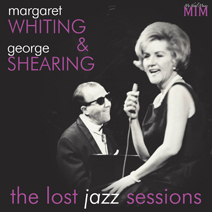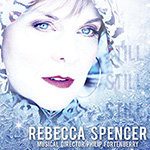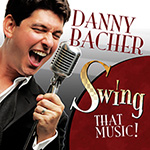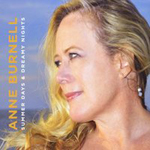Margaret Whiting & George Shearing
The Lost Jazz Sessions
(My Ideal Music)
March 13, 2015
Reviewed by Alix Cohen for Cabaret Scenes
 Born to songwriter Richard A. Whiting, Margaret Whiting (1924-2011) sang for Johnny Mercer at the age of six and was signed to Capitol Records at 13 when “Uncle Johnny” co-founded the burgeoning label. Fresh faced and American blonde, Margaret went on to become a USO favorite, radio, television, recording and nightclub star. (She even played in a few touring musicals.) Though never achieving the glossy careers of some, Margaret was not only successful with the public, but highly lauded by her peers for perfect pitch, artful phrasing, stylistic range, and an upscale, satin sound.
Born to songwriter Richard A. Whiting, Margaret Whiting (1924-2011) sang for Johnny Mercer at the age of six and was signed to Capitol Records at 13 when “Uncle Johnny” co-founded the burgeoning label. Fresh faced and American blonde, Margaret went on to become a USO favorite, radio, television, recording and nightclub star. (She even played in a few touring musicals.) Though never achieving the glossy careers of some, Margaret was not only successful with the public, but highly lauded by her peers for perfect pitch, artful phrasing, stylistic range, and an upscale, satin sound.
Pianist, arranger, and composer George Shearing (1919-2011) arrived in the U.S. from England in 1947. Two years later, he recorded “September in the Rain” for MGM, selling 900,000 records to become what we think of as an overnight success. Shearing was internationally celebrated, working with almost every important vocalist of his time. When accompanying or arranging, his adroit, popular/jazz style enhanced rather than distracted, illuminated the heart of a song, and respected its melody without being a slave to it. Shearing’s work with vocalists is eminently symbiotic, his instrumental touch highly sensitive.
“…two solitudes which border, protect, and greet each other.”
—-Rainer Maria Rilke
Debbi Bush Whiting is not sure when her mother and Shearing met, but by 1965, the two consummate musicians were very good friends. That year, Shearing asked Whiting to be the first guest on his television program. Though the two never recorded an album, they did, it seems, go into a studio to cut these songs for The Navy Swings Show, a joint public service program sponsored by radio stations and the U.S. Navy.
Imagine Debbi’s surprise when she was contacted by collector Roy Bishop who owned the original transcriptions. Brought back to life by Mike Milchner at SonicMastering in California, with the participation of Reissuing Producer Kathy Brown, the eight numbers are now available on Amazon: http://amzn.com/B00U0Y6PIW. They range from ballads to swing, from meditative to saucy. The songs are brief, but as the work of two masters who might otherwise not be experienced together, collectible and entertaining.
“Here’s That Rainy Day” (Jimmy Van Heusen/Johnny Burke) is a perfect example of Whiting’s satin tone. Phrases emerge like languorous sighs. The character singing is unwilling to believe what occurred. Shearing’s piano is sad, wistful, at the last — audibly holding back a tear.
“I’m Old Fashioned” (Jerome Kern/Johnny Mercer) offers contemplative phrasing to the strains of a music box minuet. In the tandem “Charade” and “Days of Wine and Roses” (Henry Mancini/Johnny Mercer) Whiting sounds like someone looking through an old box of faded photographs and packets of letters tied with ribbon. Her signature, back-end trill elicits empathy. Especially in the second song, Shearing describes each lyric line delicately, sometimes beside, at others beneath.
George and Ira Gershwin’s “They Can’t Take That Away from Me” is sophisticated, easy swing. Whiting is wry and flirty, but never inauthentic. I dare you not to sway. Shearing’s music skibbles as if the two are at play.
“After You’ve Gone” (Turner Layton/Henry Creamer) and “But Not for Me” (George & Ira Gershwin) are sad songs with counter- intuitive, mid- to up-tempo arrangements implying life should not be taken so seriously. Whiting’s character is sure of herself in the first, singing a ballad rife with warning. During the second, one imagines her shrugging, raising an eyebrow and ordering a highball at a smoke-filled hotel bar. Shearing’s take is appropriately insouciant, his music dancing around the vocal with a turn, a tap, a leap and a bow.
“A Foggy Day” (George & Ira Gershwin) is upbeat and up-tempo. Whiting’s voice infectiously brightens, imbuing the lyric with pleasure and relief. Short phrases have vocal tails. Equally cheery, “Get Me to the Church on Time” (Frederick Loewe/Alan Jay Lerner) arrives along with what can only call a “hip” arrangement. Instrumentation skews towards actual disco pop. Whiting is bubbly, sassy, expansive.





